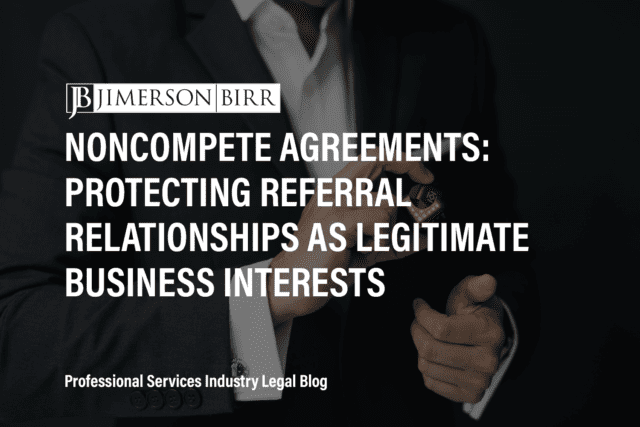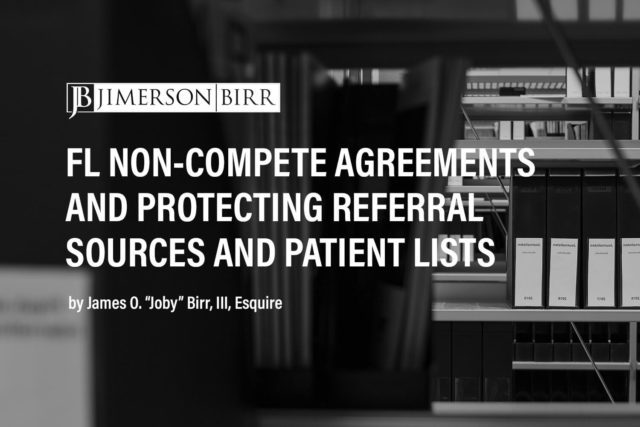What is domain name protection?
Domain name protection is vital to intellectual property protection, ensuring that businesses can safeguard their unique digital identities. In Florida, domain name protection primarily follows federal laws, such as the Anticybersquatting Consumer Protection Act (ACPA) and the Uniform Domain Name Dispute Resolution Policy (UDRP). These laws work in tandem to protect domain names from cybersquatting, a practice where individuals register domain names containing trademarks to profit from them.
For example, suppose a Florida business owns a trademark for “Tropical Widgets” and learns about a cybersquatter who registers the domain name “tropicalwidgets.com” to sell counterfeit products or demand payment for the domain name’s transfer. The business can seek remedies under the ACPA or initiate a UDRP proceeding to regain domain name control and protect its intellectual property.
Need an intellectual property advocate? Schedule your consultation today with a top intellectual property protection attorney.
In Florida, which laws and regulations apply to domain name protection?
In Florida, domain name protection primarily falls under federal jurisdiction. Essential laws and regulations include the ACPA, which allows trademark holders to file a lawsuit against cybersquatters, and the UDRP, an alternative dispute resolution process implemented by the Internet Corporation for Assigned Names and Numbers (ICANN).
Additionally, Florida’s Deceptive and Unfair Trade Practices Act (FDUTPA) may relieve some domain name infringement cases. Although FDUTPA does not explicitly address domain name protection, it prohibits unfair methods of competition and deceptive practices, which can encompass domain name disputes involving bad faith registration or use.
What are the strategic benefits of domain name protection?
Effective navigation of intellectual property law enables the following for businesses:
- Brand protection: Domain name protection helps safeguard a company’s brand by ensuring that cybersquatters or competitors do not misuse its unique name and identity.
- Preventing revenue loss: Unauthorized use of a domain name can lead to a loss of revenue for the rightful owner. By protecting domain names, businesses can prevent competitors from profiting off their intellectual property and maintain a steady revenue stream.
- Enhanced customer trust: A company with a secure and recognizable domain name improves customer trust and credibility. Domain name protection ensures that customers can confidently interact with the business, knowing they are dealing with an authentic brand.
- Search engine optimization (SEO) benefits: Businesses can improve their rankings by protecting and properly managing domain names, increasing online visibility, and having a higher likelihood of attracting potential customers.
- Legal remedies: Domain name protection allows businesses to take legal action against cybersquatters and infringers under the ACPA and the UDRP, providing an avenue for obtaining rightful control of domain names and compensation for damages.
When a set of facts is appropriate for legal intervention, there are many paths a claimant may take. We are value-based attorneys at Jimerson Birr, which means we look at each action with our clients from the point of view of costs and benefits while reducing liability. Then, based on our client’s objectives, we chart a path to seek appropriate remedies.
To determine whether your unique situation may necessitate litigation or another form of specialized advocacy, please contact our office to set up your initial consultation.
What steps should counsel take to implement domain name protection effectively?
Counsel should consider the following to protect their clients:
- Trademark registration: Registering trademarks with the United States Patent and Trademark Office (USPTO) helps businesses establish their rights to a particular name or mark, providing a basis for domain name protection.
- Domain name registration: Registering all relevant domain names, including variations and common misspellings, helps prevent cybersquatting and ensures businesses control their digital presence.
- Monitor domain name activity: Regularly monitoring domain name registrations for potential infringing or cybersquatting activities allows businesses to identify issues early and take appropriate action.
- Develop and enforce domain name policies: Creating clear policies for domain name registration, management, and enforcement helps maintain control over a company’s online presence and reduces the risk of unauthorized use.
- Consider alternative dispute resolution: In domain name disputes, legal counsel should consider alternative dispute resolution methods, such as the UDRP, to resolve issues more efficiently and cost-effectively.
- Take legal action when necessary: If attempts to resolve domain name disputes fail, legal counsel may need to pursue litigation under the ACPA and other relevant statutes to protect their client’s intellectual property rights.
Please contact our office to set up your initial consultation to see what forms of intellectual property protection may be available for your unique situation.
Frequently Asked Questions
- How can I protect my website domain name from being registered by someone else?
There are a few things you can do to protect your website domain name from being registered by someone else:
- Register your domain name as soon as possible. The sooner you register your domain name, the less likely someone else will be able to register it before you.
- Use a domain name registrar that offers trademark protection. Some domain name registrars provide trademark protection, which can help prevent others from registering domain names similar to your trademarks.
- Monitor your domain name for potential infringement. You can use a domain name monitoring service to track your domain name and notify you if another person is using it in a way that will likely infringe on your trademark rights.
- What can I do if someone registers a domain name similar to my trademark?
If someone registers a domain name that is similar to your trademark, you have a few options:
- Send a cease-and-desist letter to the domain name registrant. A cease-and-desist letter is a formal letter that demands that the domain name registrant stop using the domain name.
- File a trademark infringement lawsuit. If the domain name registrant does not stop using the domain name after receiving a cease-and-desist letter, you may be able to file a trademark infringement lawsuit.
- Register a domain name similar to the domain name used in a way that is likely to infringe on your trademark, helping prevent the domain name registrant from using the domain name in a manner likely to confuse consumers.
Have more questions about how intellectual property protection could impact your business?
Crucially, this overview of domain name protection does not begin to cover all the laws implicated by this issue or the factors that may compel the application of such laws. Every case is unique, and the laws can produce different outcomes depending on the individual circumstances.
Jimerson Birr attorneys guide our clients to help make informed decisions while ensuring their rights are respected and protected. Our lawyers are highly trained and experienced in the nuances of the law, so they can accurately interpret statutes and case law and holistically prepare individuals or companies for their legal endeavors. Through this intense personal investment and advocacy, our lawyers will help resolve the issue’s complicated legal problems efficiently and effectively.
Having a Jimerson Birr attorney on your side means securing a team of seasoned, multi-dimensional, cross-functional legal professionals. Whether it is a transaction, an operational issue, a regulatory challenge, or a contested legal predicament that may require court intervention, we remain tireless advocates at every step. Being a value-added law firm means putting the client at the forefront of everything we do. We use our experience to help our clients navigate even the most complex problems and come out the other side triumphant.
If you want to understand your case, the merits of your claim or defense, potential monetary awards, or the amount of exposure you face, you should speak with a qualified Jimerson Birr lawyer. Our experienced team of attorneys is here to help. Call Jimerson Birr at (904) 389-0050 or use the contact form to schedule a consultation.
Here are some blogs written by JB attorneys that provide more information about protecting intellectual property:
- The Lanham Act, its Extraterritorial Reach, and How It Can Be Used to Protect Trademarks from Being Exploited Outside of the United States (jimersonfirm.com)
- Florida Non-Compete Agreements and Protecting Referral Sources and Patient Lists (jimersonfirm.com)
- Non-compete Agreements: Protecting Referral Relationships as Legitimate Business Interests
- The Effect of Remote Work on Non-Compete Agreements


We live by our 7 Superior Service Commitments
- Conferring Client-Defined Value
- Efficient and Cost-Effective
- Accessibility
- Delivering an Experience While Delivering Results
- Meaningful and Enduring Partnership
- Exceptional Communication Based Upon Listening
- Accountability to Goals











